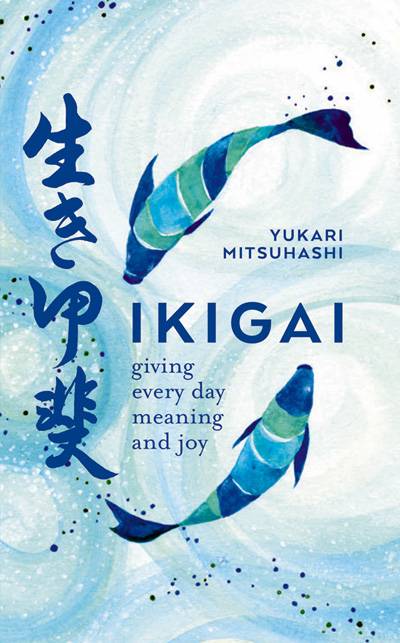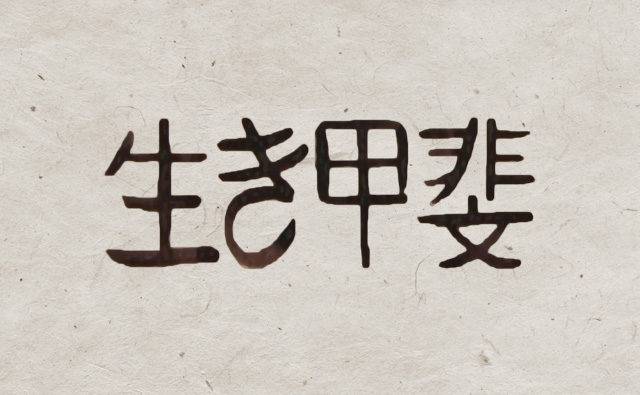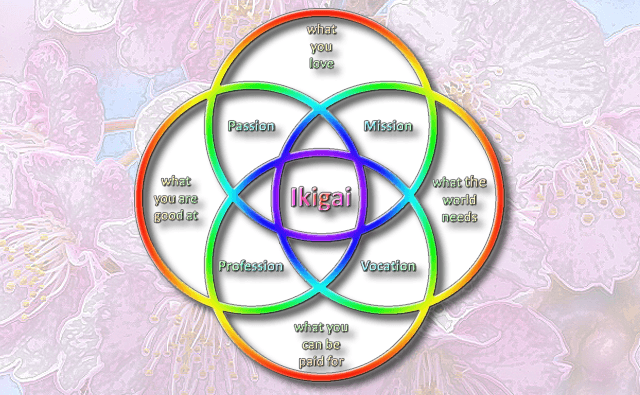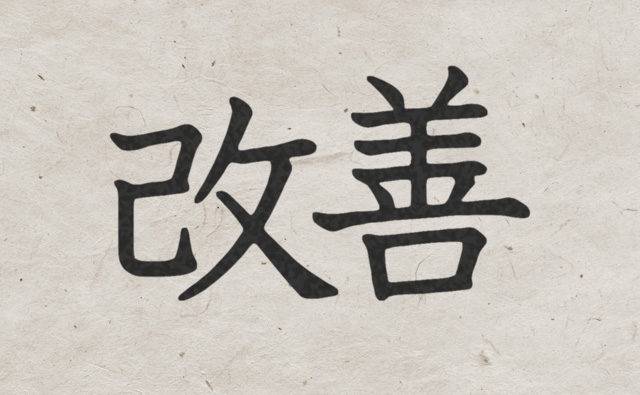Ikigai: a Reason for Being
You can increase your Ikigai by bringing what you are attracted to into your life as well as expressing it by working towards your goals.

Page Contents
The Things You Value
The quote that leads this article is one I’ve been trying to simplify for some time now. It was based upon a realisation that was imparted by reading the book.
The realisation was that what you value and what you do are separate but related things. What You Do takes time to achieve whereas What You Value doesn’t, you already value them. This means that you can increase your well being by putting more of the things you value into your life directly, instead of waiting to achieve them through your efforts.
I hope this makes sense, but if it doesn’t it’s probably because this was never an issue for you in the first place. For me, it was a revelation.
An Opportunity for Growth
It is part of my Ikigai to appreciate attractive things and this has to lead to wanting to be creative and make good designs part of my work. In the past, my appreciation would have been focussed mostly on the things I create. Now realise that I can increase the Ikigai elements I care about most in my surroundings as well.
This increased awareness has lead to steady progress with decluttering, cleaning and decorating which is having a very beneficial effect. Everything is getting better and in turn, being around the increased quality makes me feel better too.
What is Your Ikigai?

Ikigai means something similar to a reason for being and you will have your own Ikigai subjects that you will need to identify. If you have a hobby, your Ikigai is probably not the hobby itself but the motivation behind it.
Characteristics of Ikigai
Working at the Correct Pace
- Finding flow in everything
- Living an unhurried life
It is essential to work at a steady unhurried pace in order for you to be able to do your best work. It will not be possible to attend to details when rushing.
Self Care
- Be active
- Exercise daily
- Cultivate good habits
A degree of self-control is required to initiate and sustain worthwhile activities. The ability to look after your own physical and mental well being and the willingness to take responsibility for it is a foundational building block one’s character. As with anything, taking better care of yourself begins by considering just one thing that could be improved. The remainder of the changes will also be tackled one step at a time.
A Good Attitude
- Nurturing good friendships
- Be optimistic
- Give thanks
- Not worrying
- Connect with nature
- Cherishing the imperfections of life (Wabi Sabi)
- Appreciating that each moment is unique (Ichi-go and Ichi-e)
A Beneficial Career
It’s worth noting that the 4 ringed Ikigai diagram that you will see often online does not represent Ikigai, it shows how it relates to a beneficial career.
But Ikigai is a measure of value in anything you may choose to think, feel or do and is not limited to your working life.

The career focussed Ikigai diagram is founded up these 4 pillars
- What you love
- What you are good at
- What the world needs
- What you can be paid for
Your task is to find your passion that fits into the intersection of these pillars. That will produce the most fruitful results for yourself and those around you.
Attaining New Goals
The Japanese have it covered when it comes to attaining new goals as well! They have the word Kaizen, which means in effect that you should change your life slowly and wisely. You can do this using the One Minute Principle for self-improvement.

For one minute per day at the same time, engage in the activity that supports your goal, whatever it might be. This should not be so hard to do and over time the practice will extend naturally as you become more adept.
I would also like to add that you should accept before you start that there may be a degree of wastage or error in learning any new task. The error margin or wastage might well be significant on your first attempt and this is normal. You should aim to reduce the wastage or error margin gradually with each new attempt.
